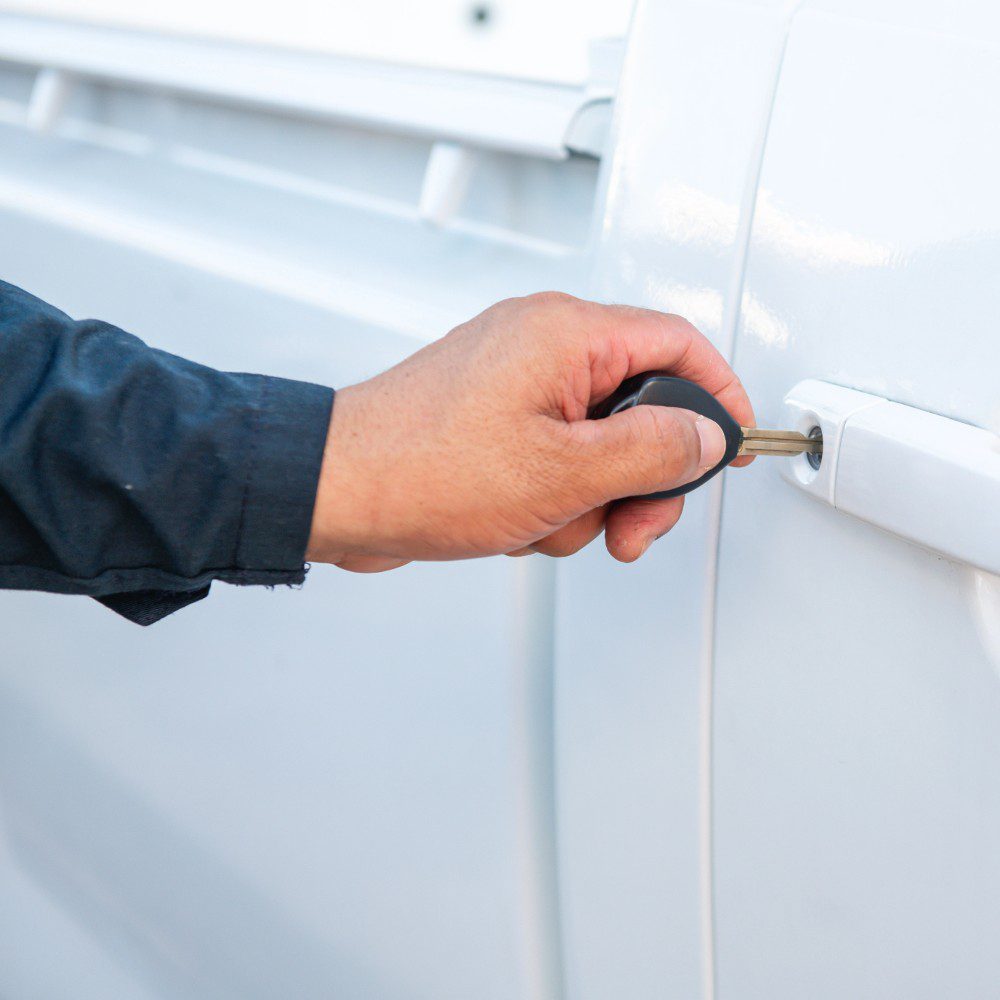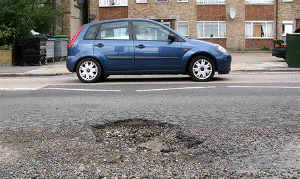Lost Car Keys? Here’s What to Do

Dealing with lost car keys? You’re probably wondering what to do next.
Fear not — we’ve got you covered. In this article, we’ll explain exactly what to do if you’ve lost your car keys, including if you think they’ve been stolen.
What do I do if I’ve lost my car keys?
Losing things is never pleasant, especially something as important as the keys to your trusty vehicle. But rest assured, you’ve got a range of options to choose from. Which one you go for will depend on how quickly you need a replacement.
Here’s our step-by-step guide.
Step 1: Find your vehicle information and relevant personal details
In order to get a new key sorted as soon as possible, you’ll first need to gather some details about the specific type of key you want to replace.
Many modern car keys consist of three important bits of technology: a mechanical key that releases the steering lock, a transponder chip which contains a special code that is read by the car, and a remote control for turning off the alarm and unlocking the doors.
But the key for your car key may be different. For example, some older key keys don’t have remote access, whereas some of the most recent models don’t have a mechanical key at all and can be started remotely with a special fob.
So it’s important to know exactly what features your new car key will need to have.
You’ll also need details of:
Your vehicle’s model and make
Your vehicle’s registration number
Your vehicle’s 17-digit identification number (VIN) (you can get this from your vehicle’s V5C log book)
Your personal ID
Your address if you need a locksmith call-out
Left your V5C logbook in your locked car? Don’t worry, there are other places you can get hold of your vehicle’s VIN. It’s also quite easy to get a replacement V5C log book.
If you still have access to your vehicle you’ll find the VIN stamped on the front end of the frame (more common in older cars) or on the driver’s side of the dashboard. Otherwise, you should be able to find details of your VIN on your car insurance records.
Read more: How to get a car key replacement
Step 2: Check your car insurance and see if it’s worth claiming against your no-claims discount
Car keys can be more expensive to replace than you’d think — especially for newer car models.
One reason for this is that, when you get a new key, your car’s engine immobiliser unit will have to be reprogrammed to recognise the new, replacement key’s transponder code.
Given the potential cost of replacing modern car keys, some comprehensive car insurance policies come standard with key cover. It can also sometimes be added as an optional extra to more basic car insurance policies, such as those covering third-party only.
It’s also worth checking any breakdown cover you may have since that can include things like roadside assistance, vehicle recovery, and even car hire. These are all useful if you find yourself locked out of your vehicle when you’re away from home.
Even if you do have an insurance policy that covers replacing lost keys, first check what excess you’d have to pay and whether it affects your no-claims bonus. Depending on how costly your lost keys are going to be to replace (and how long it will take), you might actually decide that it’s not worth claiming on your insurance.
Step 3: Find a franchised dealer or specialist automotive locksmith
If you don’t have key cover, then you’ll need to contact a franchised dealer, specialist automotive locksmith, or garage.
Going to the franchised dealer where you originally bought their car might feel like the best option as it’s trusted and familiar. However, bear in mind that getting a replacement key this way could take longer and be more expensive, and they probably won’t be able to come to your location if you’re stranded.
A specialised auto locksmith, on the other hand, is more likely to offer an emergency call-out service and come to your location — which is great if you’re stuck.
You could also try your local garage (or a locksmith that provides car key replacements). But since they’re not a specialist service, they might not have your particular key in stock, which could mean a longer wait for you.
Step 4: Make sure you get your lost key deprogrammed
Even if you’re sure your lost car key will turn up one day (perhaps from the darkest recesses of the couch), it’s usually a good idea to get it deprogrammed. Car dealers and auto locksmiths can deprogramme the internal transponder so the lost key can no longer start your car. This is crucial if your key ever falls into less-than-trustworthy hands in the future.
And, if you do find that lost key one day, it is possible to get it reprogrammed again (although doing so may incur an extra cost).
What do I need to do if I think my car keys have been stolen?
If you think that your car keys have been stolen, you need to first make a report with the police and get a crime reference number. It’s also essential that you get your stolen car key deprogrammed as soon as possible.
How much does it cost to replace car keys in the UK?
The price of replacing your lost or stolen car keys can vary considerably. It all depends on your vehicle’s brand, model, and age, as well as the type of key it uses.
For example:
Replacing the key for a Ford Focus may only cost only a quarter as much as replacing the keys for a BMW.
Replacing a manual key costs on average £160 in the UK, but replacing car keys with remote access can cost substantially higher (upwards of £320, and for the most sophisticated keys on the market, up to £1,000).
As you can see, the cost of replacing the even simplest type of car key is not to be sniffed at.
That’s because nearly all car keys nowadays have a transponder chip that requires specialist expertise to programme. In the past, it was possible to reprogramme the transponder chip yourself, but the technology has since become a lot more sophisticated, and today you’ll probably need a specialist locksmith to do it for you.
So it goes without saying — if money is on your mind and you’ve got the time, it’s worth shopping around to get the best deal.
How long does it take to replace car keys in the UK?
How long it takes to replace your car keys can be difficult to predict.
On the one hand, a specialist locksmith may be able to make you a new key in as little as 20 minutes. But, on the other hand, if you want an original equipment manufacturer (OEM) key from the dealer, you might have to wait substantially longer — potentially weeks!
Do Halfords cut car keys?
At the time of writing, no — Halfords don’t cut car keys. But they offer plenty of other car services. More details can be found on their website.
Can the AA help with lost car keys?
Yes. The AA have a mobile Key Assist team for lost or stolen keys. The AA Key Assist service can come to your location if you’re stranded, and can cut and programme a new car key in about 40 minutes.
However, it’s worth noting that although this service runs seven days a week, it’s only available between the hours of 7am and 10.45pm. And it isn’t available across all locations in the UK, for example, in the Highlands and Islands, or any location north of Aberdeen.
What happens if you lose your car key? A summary
Having to replace your car keys can be a real pain — but all is not lost. You have several options at your disposal, depending on how quickly you need a new set of keys, and how much you’re willing to spend.
If your keys have been stolen, then the first step is to contact the police. After this, or if your keys have just been misplaced, it’s time to gather essential information about your vehicle and contact your insurance provider or specialist locksmith.
By the way, if you happen to have a spare set then this whole process becomes a lot easier (and cheaper). So, if you haven’t already, it might be worth investing in a spare set of car keys just in case — future you may just thank you.
Also read:



